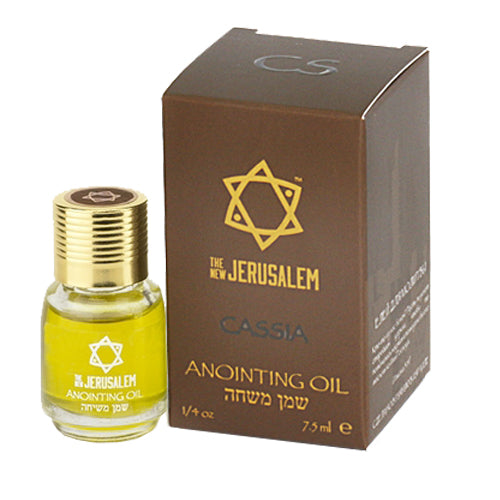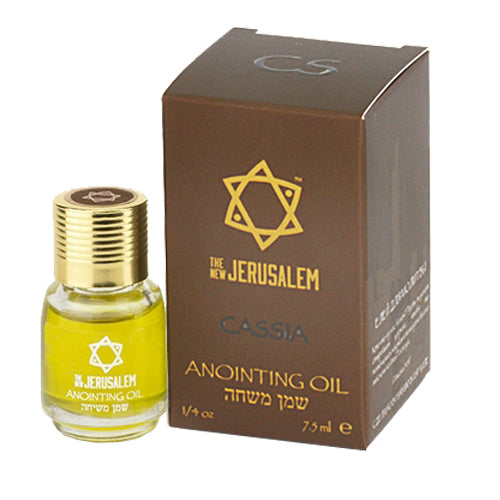The New Jerusalem Anointing Oil (Cassia)
The New Jerusalem Anointing Oil (Cassia)
SKU: OA120.10
Couldn't load pickup availability
Cassia comes from the Hebrew word, “kadad” or "ketzi'ot" which means to bow the head, to stoop, and to strip off. This is clearly a picture that speaks of humility, the false self-being stripped away.
Cassia is one of the fragrant components in the Holy Anointing Oil. The Cassia bark is aromatic, with the flavor and aroma of cinnamon, just fainter.
Like cinnamon the leaves of the cassia shrub are first stripped off and then the bark is ground into a fine powder. This portrays clearly how Yeshua laid down His own life and His willingness to empty Himself out and be stripped of His divine rights.
With the aroma of cinnamon, just fainter, this fragrance reminds us to honor others and follow the example of the Messiah who was willing to take on everything that offended God. This is an oil that speaks of humility, the false self being stripped away, and a true and servant heart emerging in the life of a person. Cassia oil is also the most antiseptic of all known essential oils and is considered by many as a tonic and stimulant. It has been known to effectively treat nausea in some cases.
Scriptures related with this oil can be found in: Psalm 45:8 and Psalm 25:9
WHY & WHEN TO USE BIBLICAL FRAGRANT OIL TODAY:
- As an act of consecration and dedication, a setting apart for a special purpose in God’s kingdom. Houses, structures, articles of worship, clothing and people can be anointed as a sign of consecration to God. Consider anointing yourself , praying Scriptures over your mind, heart, ears, eyes, hands and feet. It WILL change your day!!
7.5 ml /1/4 oz
Imported from Israel
Additional Information
Additional Information
Ingredients
Ingredients
Share



